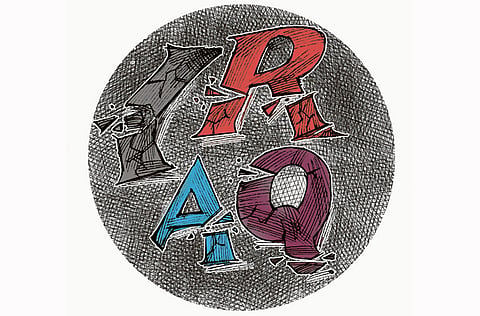What Obama must really do for Iraq
Country deserves to have a transparent government where elected officials are held accountable for their actions

In a remarkable opinion essay published in The New York Times, US Vice-President Joseph R. Biden Jr stressed that Washington must do certain things for Iraq now that Iraqi political leaders had finally agreed on a fresh compact.
Biden listed accomplishments galore — ending US combat missions, supporting Iraqi troops, signing a new Strategic Framework Agreement, building various civilian partnerships and, most important, cajoling Iraqi leaders to compromise — which were certainly noteworthy even if they did not tell the entire story.
While it is true that the Obama administration withdrew nearly 100,000 troops from Iraq, the remaining 50,000 were not mere spectators. Rather, and in addition to re-inventing their mission "to advise and assist their Iraqi counterparts, protect [US] personnel and property and participate in counter-terrorist operations," one must add the 150,000 mercenary troops to this list.
Most of the latter are engaged in a variety of security tasks, protecting Iraqi officials, foreign diplomats, and wealthy businessmen who would not last more than a few days on their own.
To his credit, Biden recognised that Iraqi security forces were not yet ready to operate solo, and needed close support for an undetermined time. Interestingly, Biden identified several key areas where senior Iraqi leaders, presumably led by Prime Minister Nouri Al Maliki, would need to focus.
He tactfully labelled these as "challenges that lie ahead," and that included "conducting a census; further integrating Kurdish security forces into the Iraqi security forces; maintaining commitments to the Sons of Iraq, the Sunni groups that banded together against insurgents; resolving disputed internal boundaries and the future of the northern city of Kirkuk, which is claimed by both Arabs and Kurds; passing a hydrocarbon law that would distribute oil revenues and maximise the benefit to all Iraqis; stabilising the economy through foreign investment, private sector development and new sources of revenue beyond oil; passing a fiscally responsible budget; and bringing to a close its post-Gulf war obligations to the United Nations".
Baghdad's burden
Under normal circumstances, such a list of challenges would break any political coalition, for few should have any illusions that Iraqi leaders agree on even one or two of them.
Nevertheless, the burden is on Baghdad, for the fate of the country must ultimately rest on Iraqi shoulders. It is within such a framework that Biden's essay must be understood, namely that Washington will do what it can, but that Iraqi leaders ought to reinvent their political mandates away from sectarianism.
Indeed, the Iraqi insurgency has yet to be defeated, with suicide and bomb attacks as regular features. Such levels of violence are not acceptable, with unending car bombs, roadside explosions and, more recently, deadly assaults on churches. Moreover, and even if a new government was painstakingly agreed upon, no one should be under any illusions that it would last long.
For the decision to enter into a coalition was, in part, to quell the level of violence. In fact, US President Barack Obama personally intervened to persuade Eyad Allawi, who leads the predominantly Sunni Iraqiya group, to enter into a power-sharing government with his arch-rival Al Maliki, and settle for the speaker's post in the national assembly while the Kurds retained the presidency.
On all substantive matters, however, as described in Biden's essay, full reticence is the order of the day.
What Washington failed to note was the gap that emerged between the Iraqi electorate and its supposed representatives. Indeed, eight months ago, Iraqis voted for nationalism and against sectarianism. In the words of one astute observer, they voted "for Iraqiya and not for Sunni Islamists, for the Da'awa party and not for the ultra-Shiite Islamic Supreme Council of Iraq".
Sadly, little of that nationalism was visible in the nascent government, as the same officials relied on sectarianism to allocate portfolios and begin to agree on political programmes. This is a disaster in the making. Iraqi leaders should draw clear lessons from Lebanon, where communal power sharing proved less than successful, and where the threat of division cannot be ruled out.
If Iraqi leaders opt for the zu'ama [leaders] formula that allow a few to rule over well-defined religious or ethnic groups, few should be surprised that Iraq will eventually be divided, an option that Biden endorsed a few years ago. If, on the other hand, Iraq is to stay a unified country, represented by elected officials beholden to their electorates, then we must all do something different to gradually replace ethno-religiosity with genuine representative politics.
Iraq is embarked on a long-term restructuring effort and its people want and deserve to have a transparent government where elected officials are "accountable." Like Lebanon, which is going through similar pains, Iraq needs men and women who wish to serve the nation. It does not need corrupt political elites who ignore their duties.
Consequently, Biden's What We Must Do for Iraq Now should thus be updated to What We Must Really Do for Iraq Now, if for no other reason than to be true to those universal values that the United States hopes the rest of the world will adopt and apply. These should reject sectarianism but include real democratisation.
Dr Joseph A. Kechichian is a commentator and author of several books on Gulf affairs.


